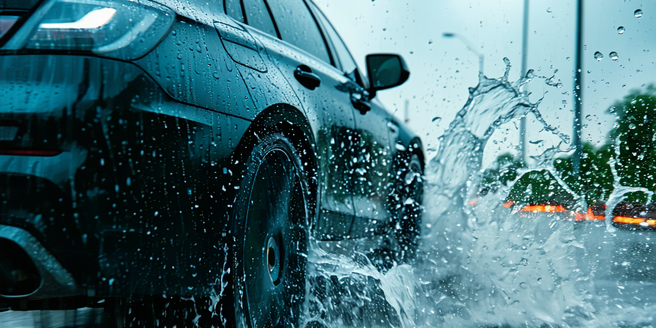
Understanding Weather Impact on Vehicles
Rain can significantly impact vehicle performance and longevity. Water can cause problems like rust formation on metal parts and affect the efficiency of electrical systems. Additionally, rainwater mixed with road contaminants can lead to accelerated wear and damage. Vehicle engines, brakes, and undercarriage components are particularly sensitive to moisture-related issues. Drivers should be vigilant about regular inspections for water-related damages and maintain timely servicing. Ignoring the weather’s impacts on vehicles can lead to expensive repairs and compromised safety. Therefore, understanding how rain and similar weather conditions affect your vehicle is crucial for ensuring its durability and functionality.
Essential Rainproofing Techniques
Rainproofing your vehicle is an essential step in ensuring its longevity during wet seasons. Start by examining the seals around doors and windows for any signs of wear. Replace damaged seals to prevent water intrusion. Apply a high-quality waterproof wax or sealant on the vehicle’s exterior to repel water and protect the paintwork. Ensure your wipers are in excellent condition to maintain visibility. Additionally, covering your vehicle during heavy rainfall can prevent standing water accumulation that might lead to rust or paint damage. Regular cleaning and maintenance go a long way in preserving your vehicle amid rainy conditions.
Tire Maintenance for Wet Conditions
Effective tire maintenance is paramount for safe driving during wet conditions. Firstly, ensure your tires have adequate tread depth; worn treads significantly reduce grip on slippery roads. Regularly check tire pressure, as low pressures can compromise handling and increase the risk of hydroplaning. Rotate tires periodically to promote even wear and optimal traction. It’s also beneficial to familiarize yourself with your vehicle’s manual to understand specific tire requirements. Investing in high-quality all-weather or rain-specific tires can further enhance performance. Visual inspections for punctures or irregular wear should be routine. Keeping wheels aligned ensures better tire performance, contributing to safer driving during inclement weather.
Protecting the Vehicle’s Exterior
To protect your vehicle’s exterior, regularly applying a layer of wax can shield the paintwork from rain damage. Waxing not only enhances the shine but also forms a barrier against water and pollutants. It’s wise to use a specialized car cover during heavy rains to prevent excess moisture from settling. Pay attention to the undercarriage, as it is vulnerable to rust formation due to road water and salt during rainy periods. Regular washing is essential to remove accumulated dirt and grime that can degrade the paint. Proper exterior care will prolong the aesthetics and value of your vehicle.
Ensuring Clear Visibility in Rainy Weather
Ensuring clear visibility during rainy weather is vital for safe driving. First, check that your wiper blades are functioning efficiently, replacing them every six to twelve months. Use a glass cleaner to remove any residue on the windshield that might blur vision. Staying proactive about car maintenance can prevent dangerous situations on the road. For extra protection, apply a hydrophobic treatment to the glass surfaces to repel water. Ensure that your headlights, taillights, and indicators are clean and functioning correctly, as their clarity is crucial in poor visibility conditions. A defogger or air conditioning helps prevent internal fogging, crucial for maintaining an unobstructed view.
Interior Care During Rainy Seasons
Interior care during the rainy season is crucial to prevent mold and odors. Start by using waterproof floor mats to contain mud and water brought in by shoes. Ensure windows and sunroofs are closed tightly to prevent leaks. Regularly clean and dry the seats and carpets to eliminate any moisture. Consider using dehumidifiers or silica gel packets in the car to keep humidity levels in check and prevent dampness. Upholstery protection sprays can also be utilized to guard against water damage. A fresh-smelling, dry interior not only enhances comfort but also preserves the vehicle’s condition.
